Search for articles, topics or more
browse by topics

Search for articles, topics or more

Informed by Japanese traditional ceramics and culture, the search for imperfection and incomplete beauty in Yoshimi Futamura’s (1959) work is the key to emphasising their emotional connection with Nature, evoking an instinctive memory of our origin and belonging to it as living beings.
Among the first artists represented by KALPA Art Living since the opening in 2019, Futamura’s ceramics perfectly channels their vision, embracing the fields of arts and crafts within a continuity between the past, present, and future. As part of the valuable collaboration between the Tuscan-based gallery and Molteni&C, Futamura was invited to present a selection of forceful artworks in stoneware and porcelain for the International Salone del Mobile.Milano 2023 and for the following advertising campaign of the new furniture collection.
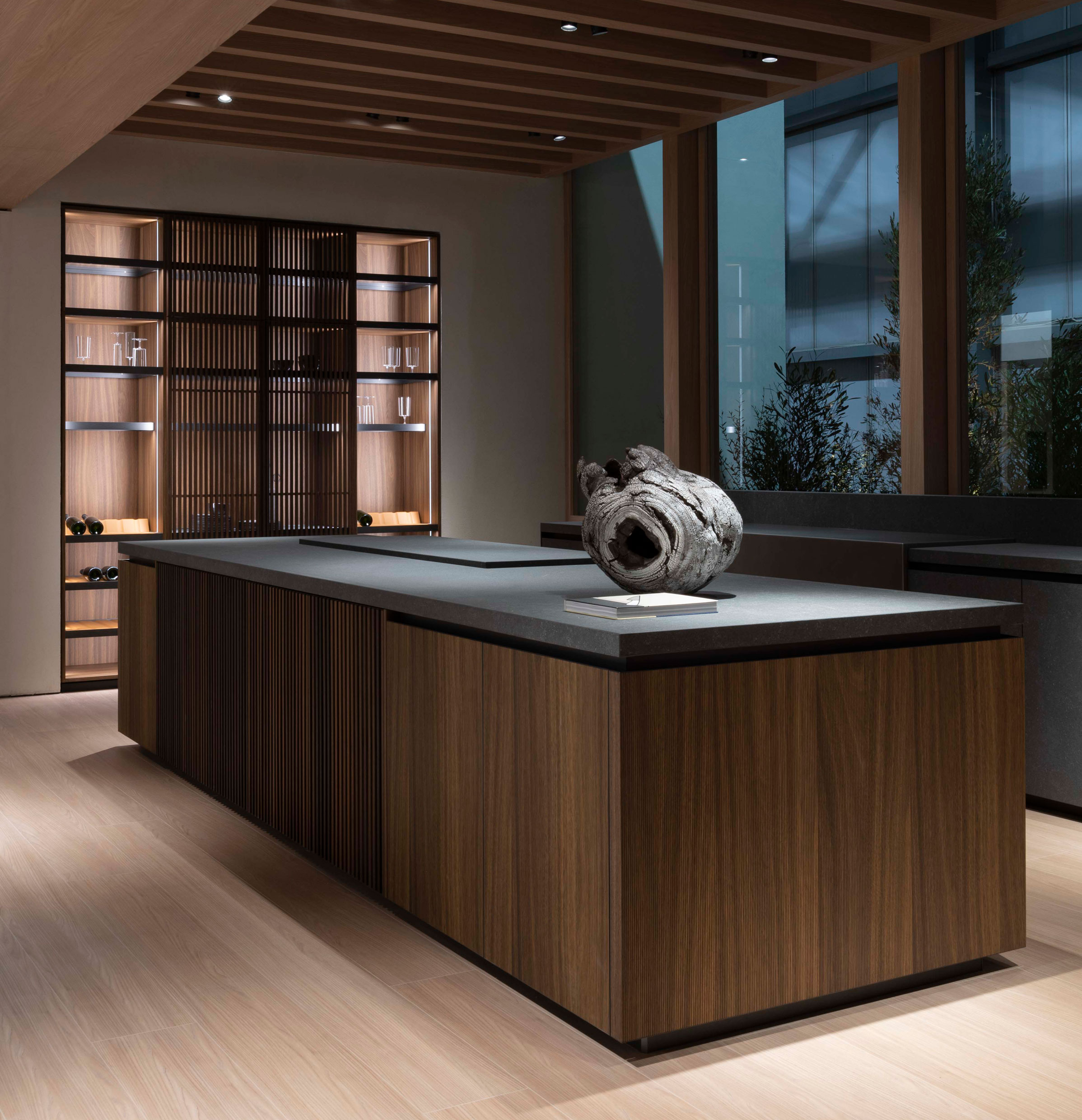 Salone del Mobile.Milano 2023
Salone del Mobile.Milano 2023
Her pieces exquisitely present a perfect balance between Oriental and Occidental approach to art as well as encapsulate the vision of living expressed by the Molteni&C’s art director Vincent Van Duysen. A selection of Futamura’s works are also exhibited in Molteni’s headquarter until Spring 2024.
Each of Futamura's objects embodies a unique character and energy, comprising an idea of art that honours the spirit of art living, and moving fluidly between function and abstract form. The particular surface may appear burned, crushed, or speckled with fine granules, and it is obtained by a delicate patina of liquid porcelain that cracks around the clay during the refined firing process at high temperatures. Through this innovative procedure, Futamura reveals the power inherent within her medium, aesthetically emphasised by the deep cavities of some of her artworks that seem to be on the brink of expanding to burst or sinking to collapse.
“My main source of inspiration is nature. In Japan, life is greatly related to nature and we learn to respect it.”
Yoshimi Futamura
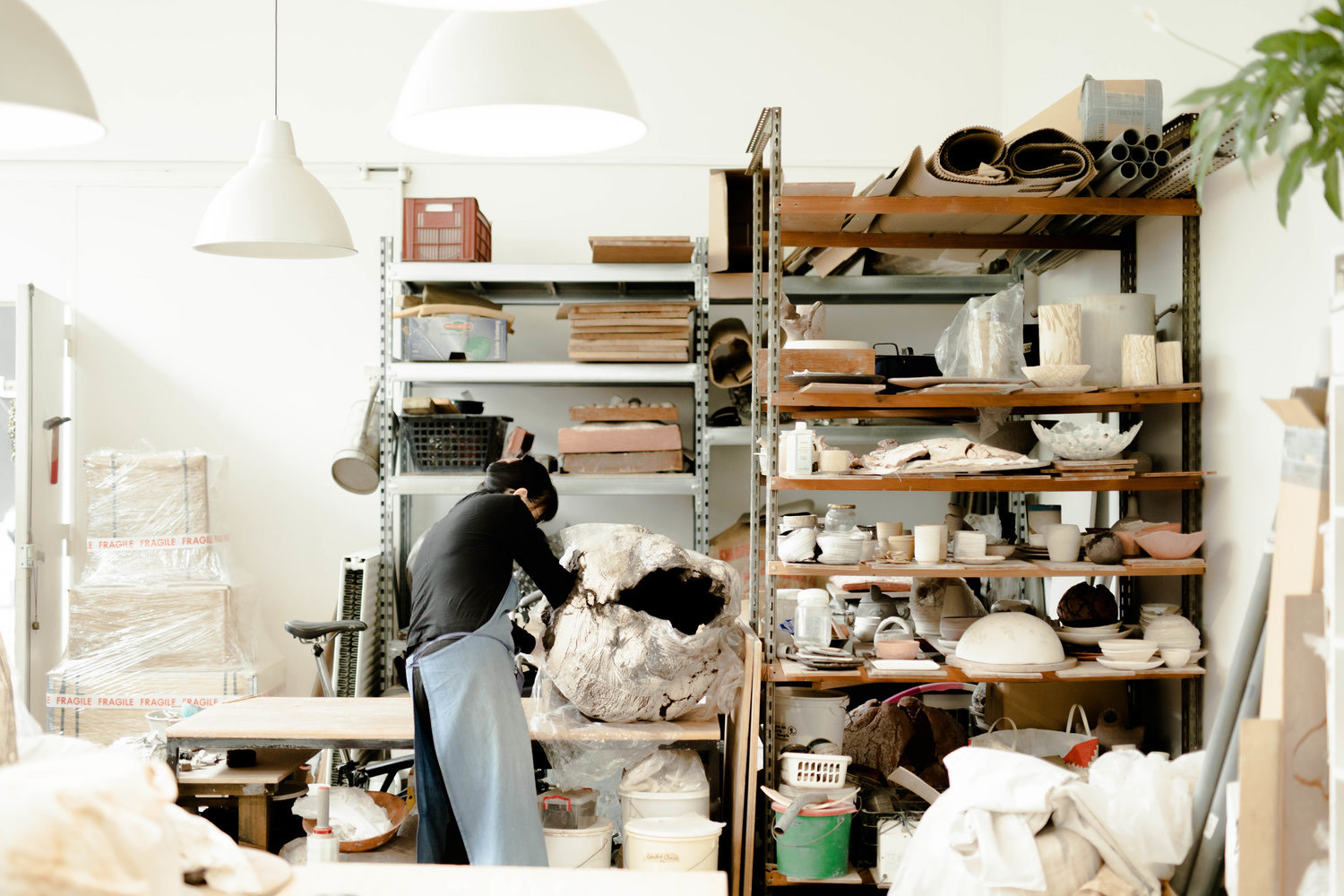
1. How and when did your love for ceramics and career begin?
At fifteen years old, I realised that I wanted to use my hands to create something. I was born and raised in Japan, where I was initiated to the Buddist ceremonies thanks to my family and entered in contact with the spiritual dimension of ceramics; also, at Japan's Seto School of Ceramics I learned about the vast Japanese culture of ceramics and traditional techniques. Once I moved to France, I graduated from the Duperrè School of Applied Arts and opened my artist studio. While being deeply connected to Japan, I believe Paris “made me an artist” and forged my own path via its cultural stimulation, museums, exhibitions and interaction with people from all over the world.
2. Which are the values, the concepts, your works and art practice are based on?
In my work I draw inspiration from Nature, its biodiversity and diverse forms, the beautiful transitions of the four seasons, the fruits they bring to the archipelago and sometimes the fear of natural disasters. When I look at clay, when I touch it, and sometimes when I taste it, I sense the secret message of this marvellous material and understand the power of clay. My practice can be read within the concept of wabi-sabi, or incomplete beauty, as the irregularity of my pieces increases their meditative quality.
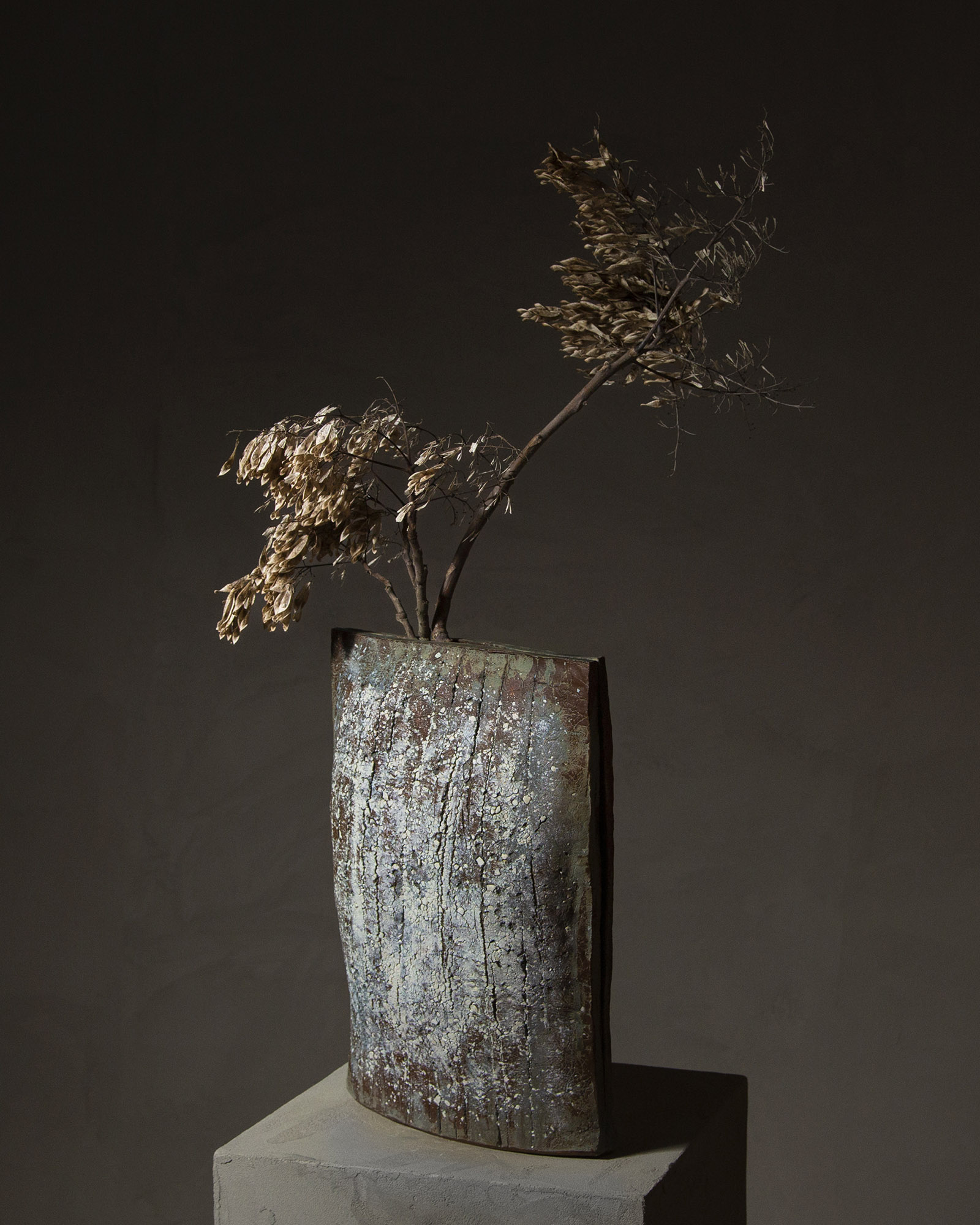 Yoshimi Futamura Artwork | Photo by Vittorio Marrucci
Yoshimi Futamura Artwork | Photo by Vittorio Marrucci
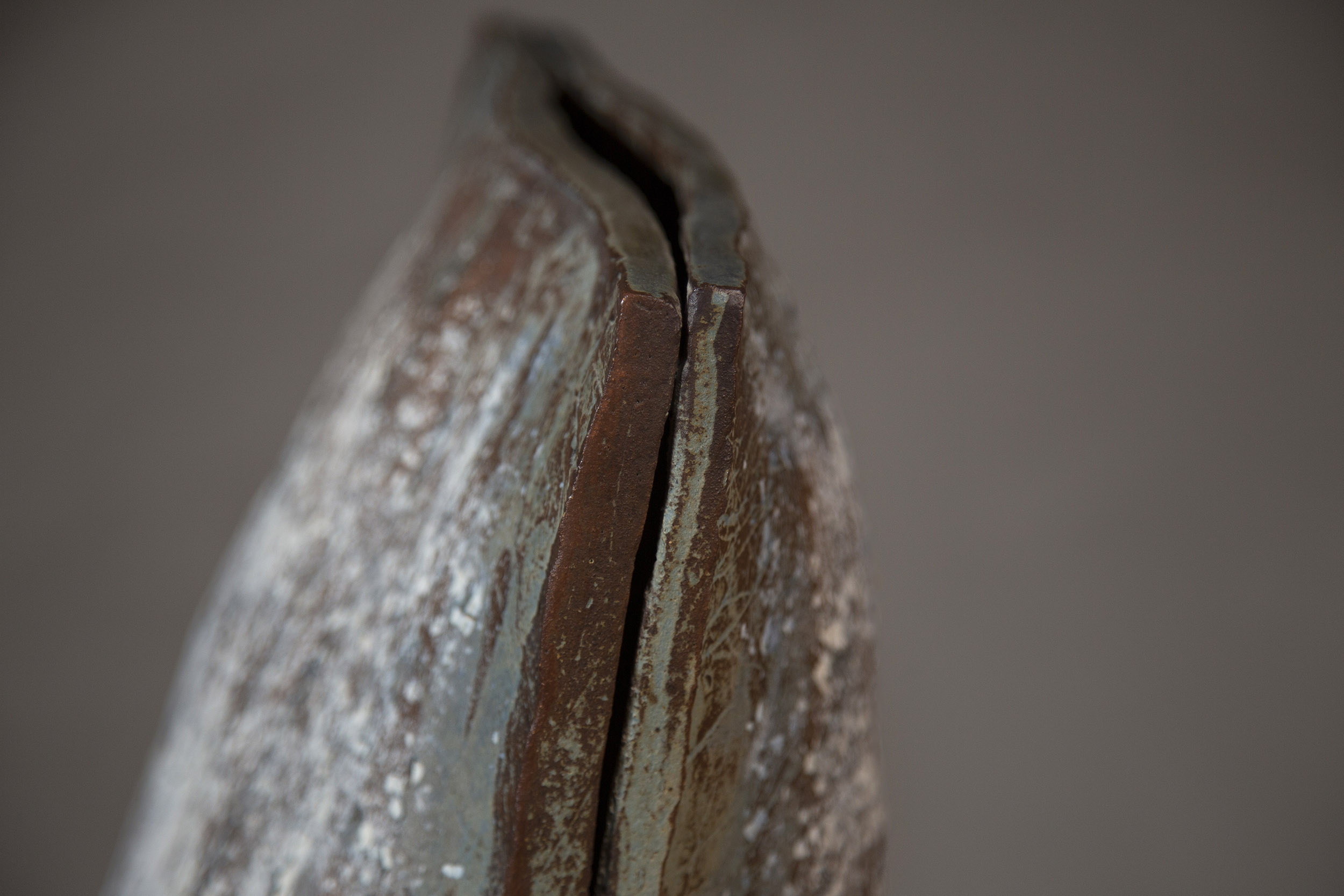 Yoshimi Futamura Artwork | Photo by Vittorio Marrucci
Yoshimi Futamura Artwork | Photo by Vittorio Marrucci
3. Your pieces are charged with spirituality and energy…
Shaped by its creator, the terracotta is an invitation for the viewer to discover the path of a tactile imagination. When I was a student, I was initiated into the art of wood-firing ceramics and the spiritual dimension contained therein: in my view, the matter becomes the centre of a new spirit coming from the Earth and as a being per se, as well as a natural asset leading the viewer to something emotionally shared.
“The earth is the raw material of my work. I strive to express its energy and natural strength. Earth plus Water plus Fire. It is thanks to these three elements that I can give birth to a new life.”
Yoshimi Futamura
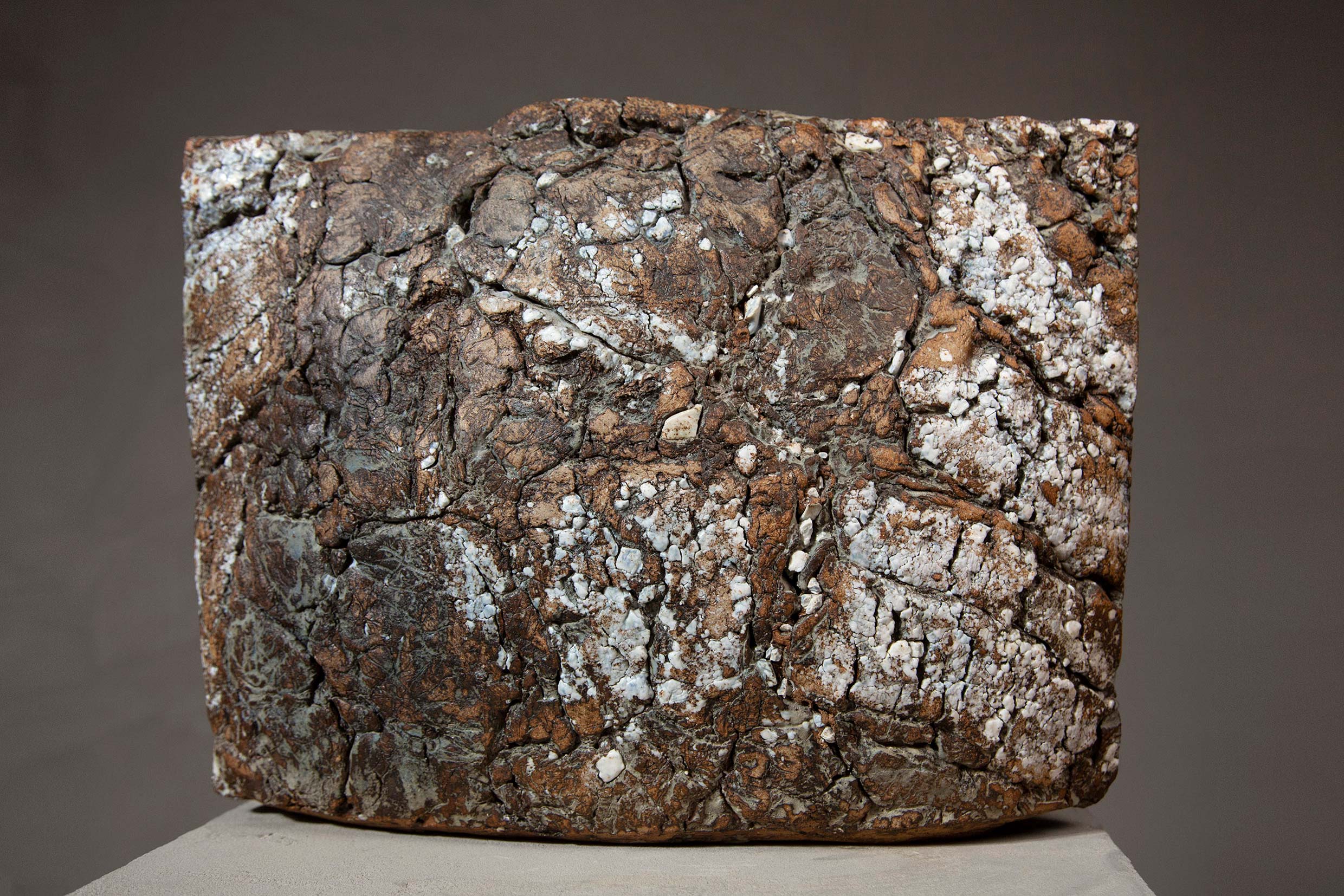
4. Art breathes life to home…
Since the beginning of mankind, ceramic objects have always been associated with everyday life and uses. Earth is indeed one of the oldest used materials for creating objects and houses, and retracing its journey is like retracing the history of humanity. To me there is no conceptual distinction between functional and non-functional art, as I believe that a cup or a bowl can be art: a simple bowl in a home can infuse the place spiritually. Lives become richer, attuned to the beauty of objects that are made to be used daily.
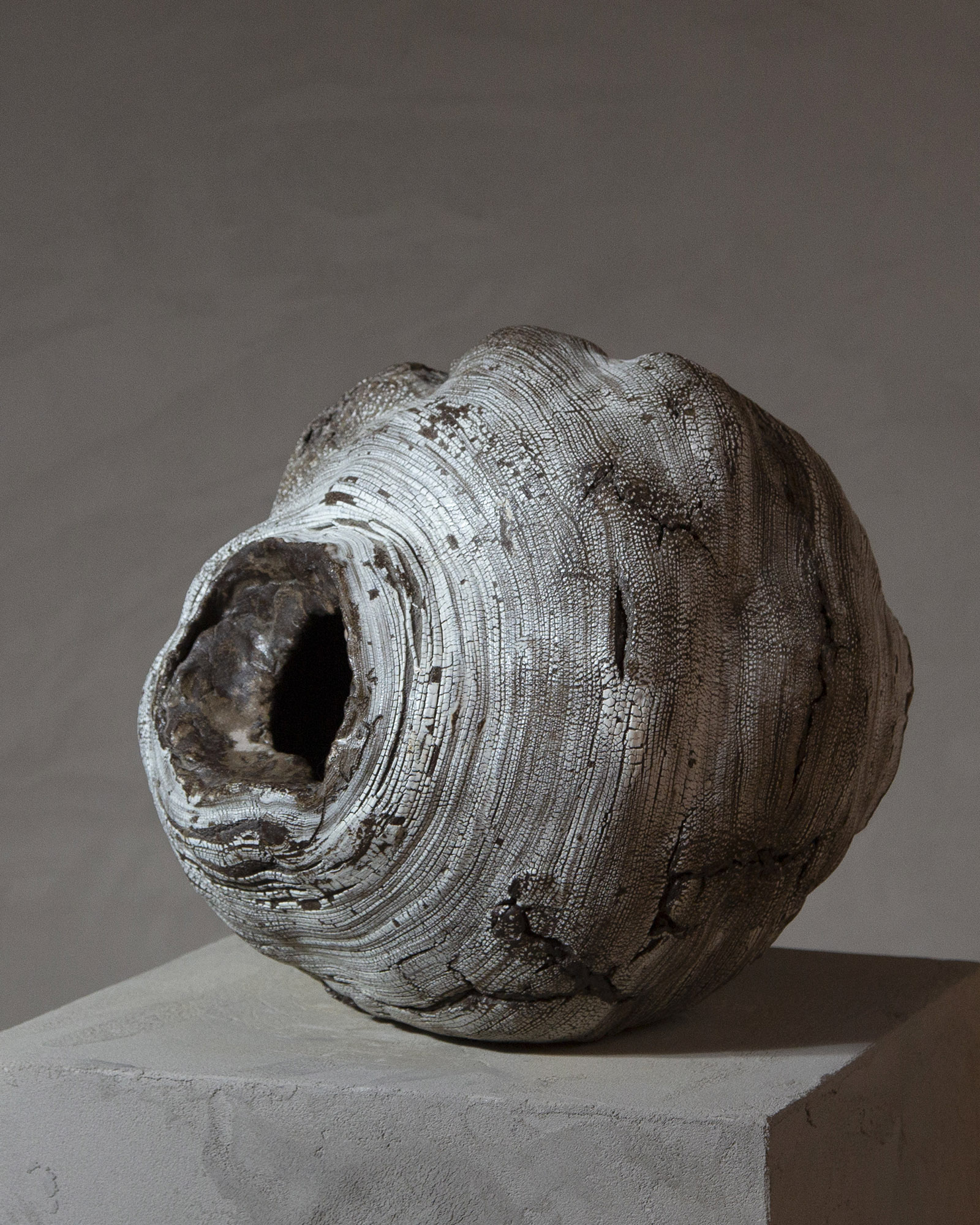 Yoshimi Futamura Artwork | Photo by Vittorio Marrucci
Yoshimi Futamura Artwork | Photo by Vittorio Marrucci
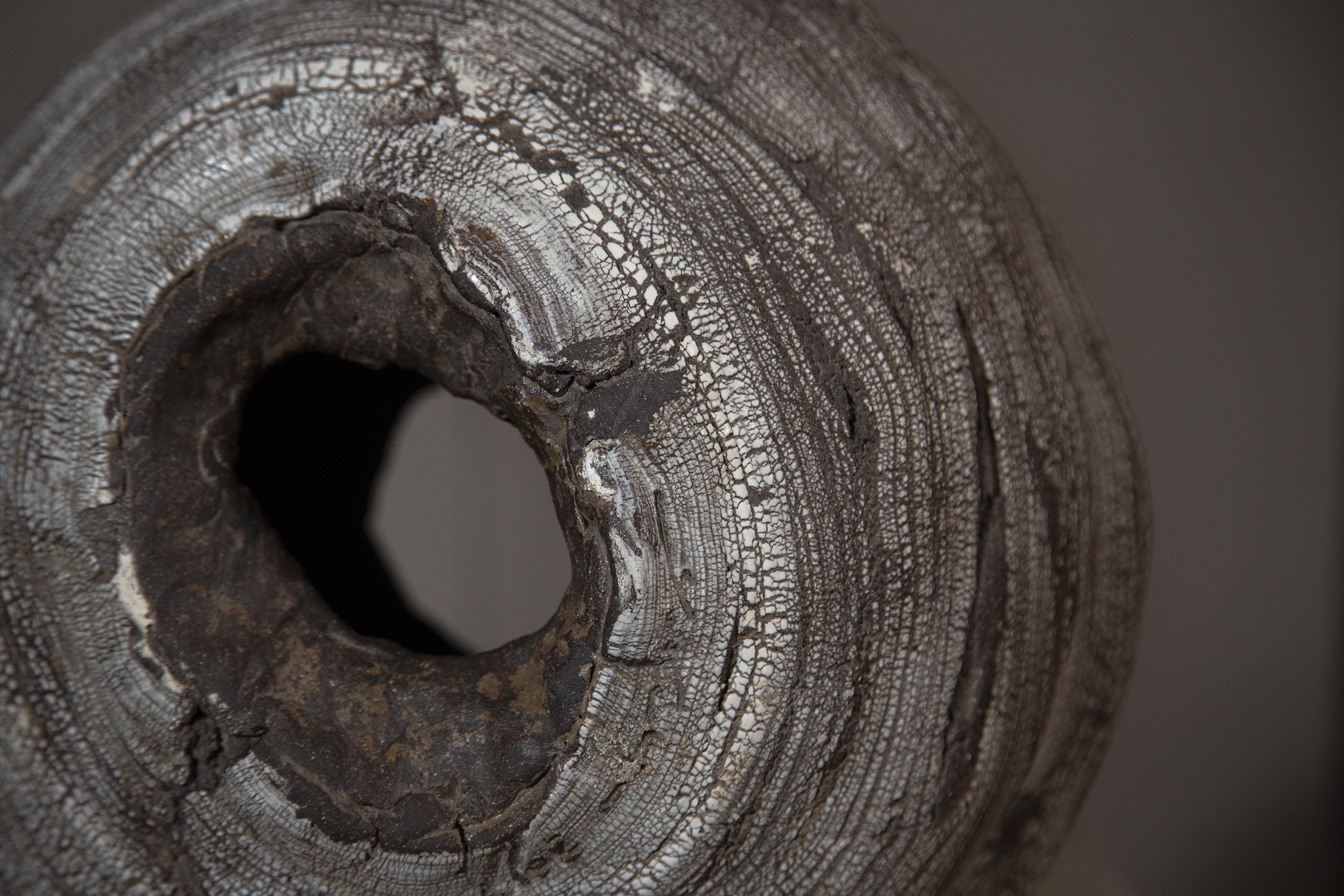 Yoshimi Futamura Artwork | Photo by Vittorio Marrucci
Yoshimi Futamura Artwork | Photo by Vittorio Marrucci
5. Ceramics as a source of life and feelings...
I express myself through the medium of clay, and my research is now taking me even further. My work represents a fear of the uncertain, a force beyond our control that threatens to extinguish everything, even the desire for rebirth. The 2011 Tōhoku earthquake reminded me of how grateful I am to have grown up in Japan, as I could not be where I am today without its cultural influence. From that moment in particular, I began to introduce a profound change into my own work as my deep beliefs, feelings and social messages became part of my sculptures, and thus the Métamorphose, Black Hole and Rebirth series of works came into being.
 Yoshimi Futamura in her Studio | Photos by Lindsay Cox
Yoshimi Futamura in her Studio | Photos by Lindsay Cox
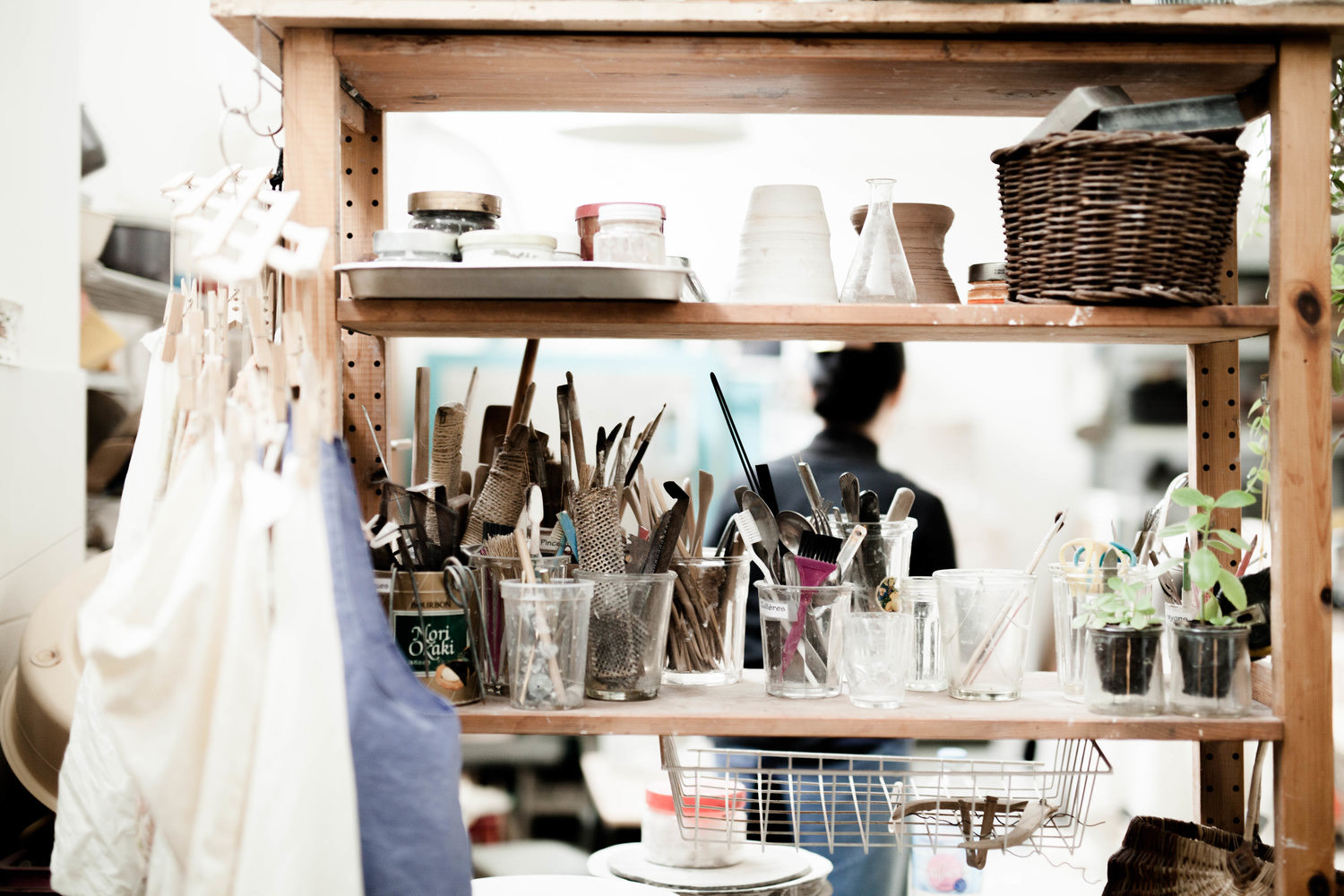 Yoshimi Futamura in her Studio | Photos by Lindsay Cox
Yoshimi Futamura in her Studio | Photos by Lindsay Cox
6. Your art research in three words.
Power of earth, feelings, primordial naturalness.
7. Tell us about the rituality in your art practice .
I never forget to pray when I close the door of my kiln. My first contact with a piece is when I take one of them out of there. I have a lot of experience now, and I know roughly what the pieces are going to look like when they come out. But sometimes the work that comes out of the kiln exceeds my expectations and, for me, that's a success. The final touch on a piece is the firing. I try to manipulate what's going on, but I can't touch the pieces directly when they're firing, because they're too hot. Something happens and I get more than I expected, but it's rare, we call it a “gift from the kiln”.
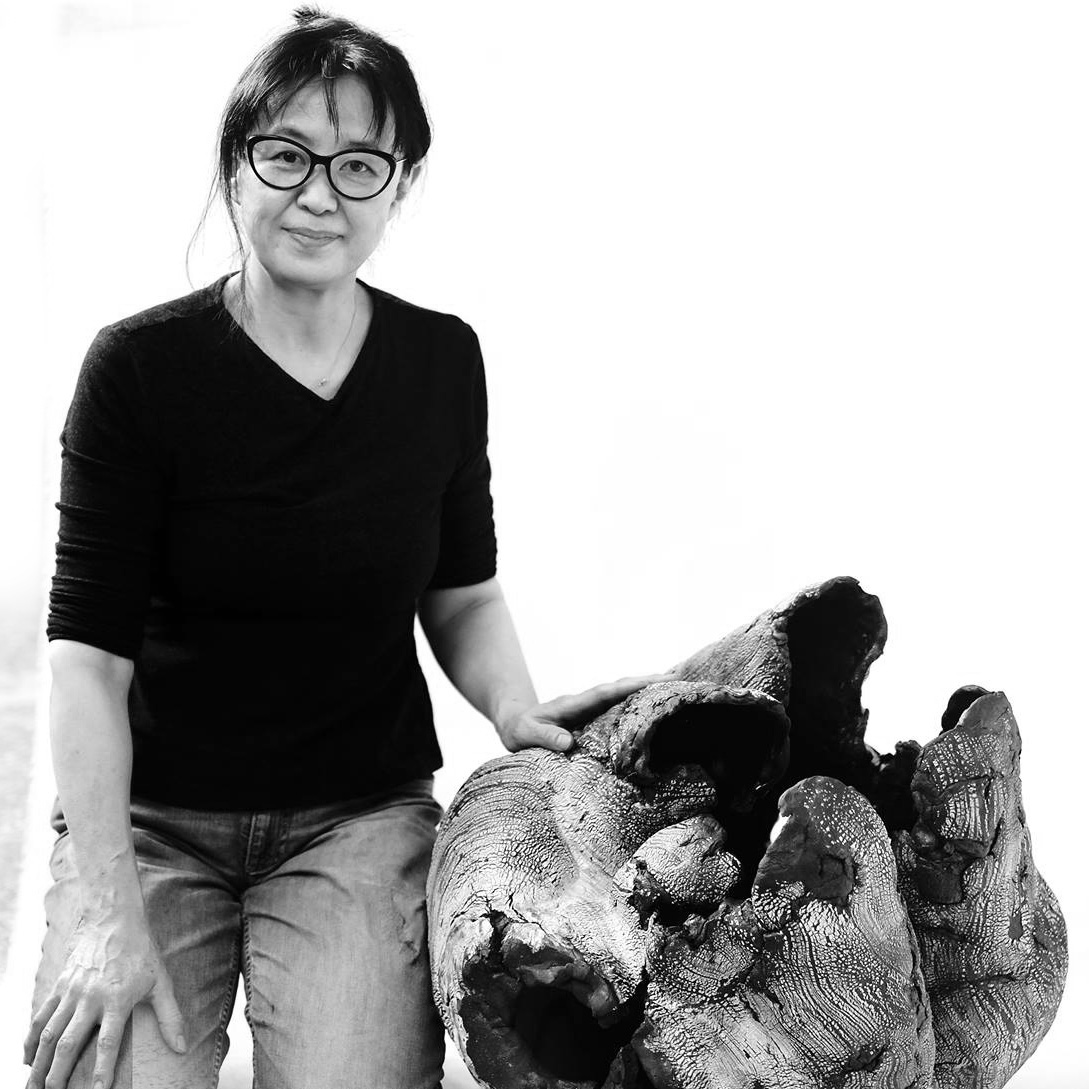 Yoshimi Portrait | Photo by Linday Cox
Yoshimi Portrait | Photo by Linday Cox
Yoshimi Futamura
Internationally exhibited ceramist, Futamura was born in Nagoya (1959), Japan, but has been based in Paris since 1986. Over the past decades, she has produced several series in stoneware and porcelain such as Black Hole and Rebirth, Vasque, and Bol Ecorce, all botanical and geological-inspired sculptures and vases. Futamura’s use of organic textures is combined with traditional shapes in ceramics, creating unique works of art: starting with tubular forms on a wheel, she then applies to the work a white porcelain slip, manipulating the shape from the inside out, and finally concluding with the drying and firing stages. Her work can be found in public collections worldwide, including the Harn Museum of Art, Minneapolis Institute of Art, Minneapolis, Museum Boijmans van Beuningen, Rotterdam, the AIC Ariana Museum in Geneva, the Yale University Art Gallery, and The Brooklyn Museum.
AUTHOR
Eleonora Raspi
Eleonora Raspi, PhD, is a researcher, writer and art curator. Born in Volterra in 1982, she returned to her hometown in 2015 after twenty years working in Milan, Philadelphia and London. Having proudly served as Councilor for Culture in Volterra, she is now a curator at KALPA Galleries and a contributor to Maize Magazine. Raspi graduated with a degree in Art History (MA, Catholic University of Milan, 2007) and Italian Studies (MA, University of Virginia, 2010), to then obtain her PhD from University of London in 2016 with a dissertation on the cinema of Michelangelo Antonioni. Throughout her career, Eleonora has worked within the fields of Contemporary Art, Cinema and Literature for several art institutions and universities in the US and the UK.
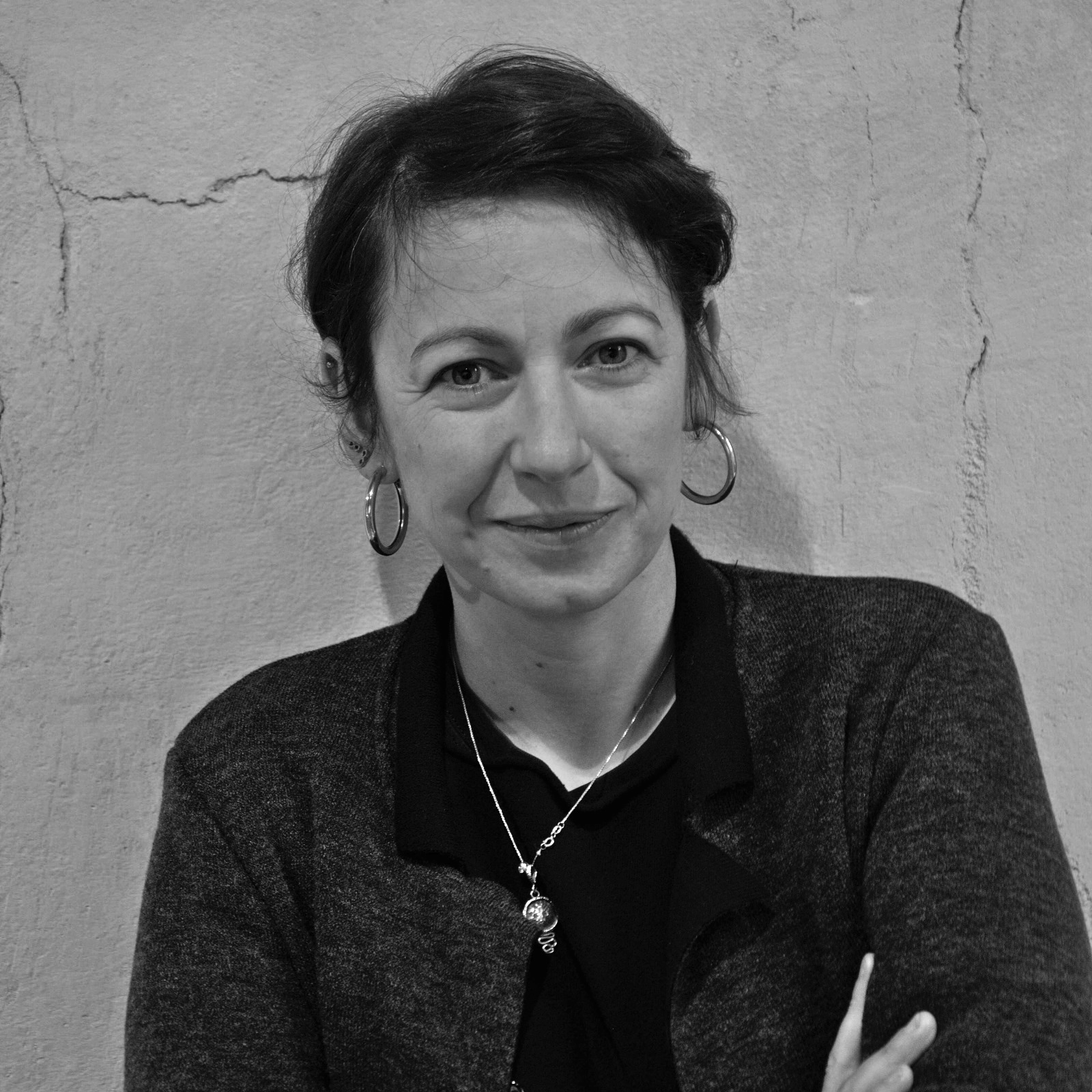
The photographer Jeff Burton is known for the cinematic quality of his work: bathers by a hotel pool become a study in saturated colour; tanned bodies are seen at one remove, distorted by mirrored surfaces; a woman’s glance is glimpsed through a car’s rearview mirror.
Lunar New Year is the most important day in China’s lunisolar calendar.
The holidays are a time to eat, drink and make merry – the most convivial time of the year.
Thanks for your registration.